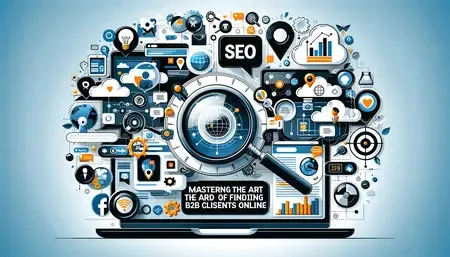
Influencer Marketing: Strategies for Modern Businesses
Influencer marketing, a novel approach in the digital marketing landscape, has gained momentum in the last decade. This strategy involves brands collaborating with online influencers to market products or services. The concept took root with the advent of social media platforms, providing a new avenue for personal branding and audience engagement.
Initially, influencer marketing was primarily the domain of celebrities. However, with the democratization of content creation online, a diverse range of influencers has emerged. These individuals, often with niche followings, offer targeted and engaged audiences, making them valuable partners for brands looking to connect with specific demographics.
How Influencer Marketing Works and Its Applications
Influencer marketing revolves around leveraging the influence and reach of content creators. Brands collaborate with influencers who resonate with their values and target audience, creating authentic content that promotes their products or services. This content, ranging from social media posts to blogs and videos, is shared with the influencer’s followers, generating exposure and credibility for the brand.
This marketing strategy is utilized across various industries, from fashion and beauty to technology and food. Influencers are often seen endorsing products, sharing reviews, or creating how-to content that incorporates the brand’s offerings. This approach has proven effective in driving brand awareness, customer engagement, and even direct sales.
Furthermore, influencer marketing is not limited to big brands with large budgets. Small businesses and startups have also tapped into this strategy, partnering with micro-influencers to reach niche markets cost-effectively.
Global Adoption of Influencer Marketing
The adoption of influencer marketing is widespread, transcending geographical boundaries. Brands worldwide leverage influencers to penetrate new markets and resonate with local audiences. The rise of regional influencers has been particularly instrumental in allowing global brands to gain a foothold in local markets.
In the entertainment industry, influencer collaborations are a staple for promoting movies, music, and television shows. The travel industry also capitalizes on influencers, with travel bloggers and photographers influencing destination choices and travel-related purchases.

In terms of ROI, influencer marketing often outperforms other marketing channels. The targeted nature of influencer collaborations leads to higher engagement rates and more effective audience reach. Brands also benefit from the creative content influencers produce, adding value beyond mere product promotion.
The future of influencer marketing is poised for even more growth and innovation. With the rise of new social media platforms and evolving digital technologies, influencers are likely to adopt more interactive and immersive ways to connect with their audience. This includes the use of augmented reality (AR), virtual events, and personalized content driven by AI technologies.
Another emerging trend is the increasing importance of values and ethics in influencer marketing. Consumers are more inclined to trust influencers who demonstrate authenticity, transparency, and a commitment to social and environmental causes. As a result, brands and influencers are expected to prioritize these aspects in their collaborations.




